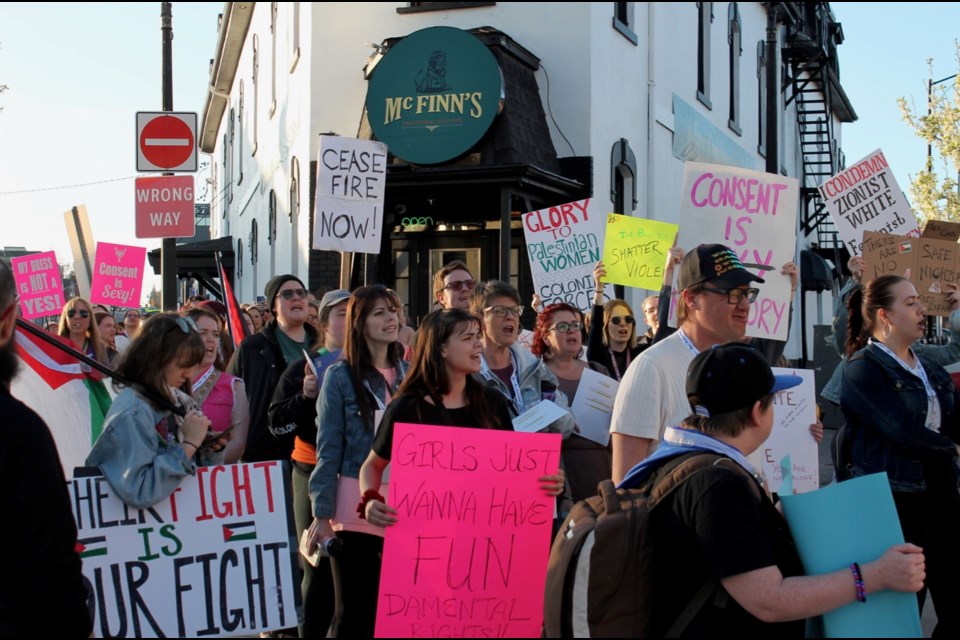NEWS RELEASE
HURONIA TRANSITION HOMES
*************************
On Thursday, May 2, 2024, nearly 200 people turned out to protest sexual violence against women and gender-diverse people at Athena’s Sexual Assault Counselling & Advocacy Centre’s 21st annual Take Back the Night protest in the City of Barrie.
Athena’s is the regional sexual assault centre of Simcoe County, and is a program of Huronia Transition Homes, an organization that is celebrating its 40th year in 2024.
The heart of Take Back the Night is emotionally charged, because as so many people occupy the space, it is alarmingly clear how pervasive sexual violence is today. While patriarchy and sexism sound like ambiguous terms, they are heard in the words that survivors hear all too often after coming forward: “Do you have proof? How much did you drink? Boys will be boys. What did you do to make him mad? Well, he bought you ABC, so you should give him DEF. Why did you go there alone? He is a good person; are you sure that happened? What were you wearing? Why didn’t you fight back?”
Violence against women and gender-diverse people happens within relationships and in social interactions, but violence also occurs within our systems. It is a systemic violence that we do not have affordable housing, a safe supply, a supervised consumption site, or specialized care services that address the unique physical and mental health needs of women and gender-diverse people who have experienced violence.
As much as Take Back the Night provides a safe space to hold the pain and struggle that survivors carry, it is also fuelled by the powerful drive to create tangible, lasting change. As Haily MacDonald, acting executive director of Huronia Transition Homes, stated in her speech, “If we are going to change from this culture, we have to stop just celebrating our resilience, and we’re allowed to use our rage, and get angry that this still exists.”
But what does change actually look like?
Change happens when we say: “I believe you. It’s not your fault. Is there anything you need? I am here for you.” Change happens when community safety and well-being plans include gender-based violence. Change happens when we refuse to accept stories of femicide as just “painful moments,” but rather as evidence of a widespread, systemic problem. Change happens when men recognize their responsibility to speak up and participate in the work to end gender-based violence. Change happens when people refuse to accept violence as a normal part of life.
“We need every one of you to speak about these things,” says MacDonald, “to help become the agents of change. If community is defined by change, then let’s make our community into an ecosystem that interrupts violence, that challenges patriarchy, that dis-embeds colonialism, and that supports everyone to live with a sense of safety and dignity.”
*************************



